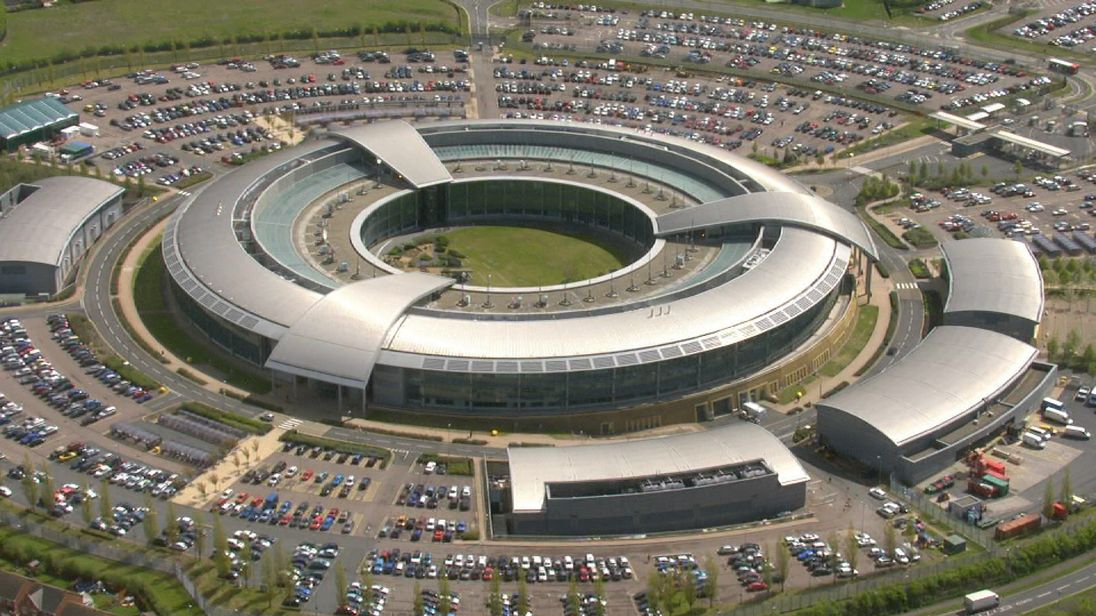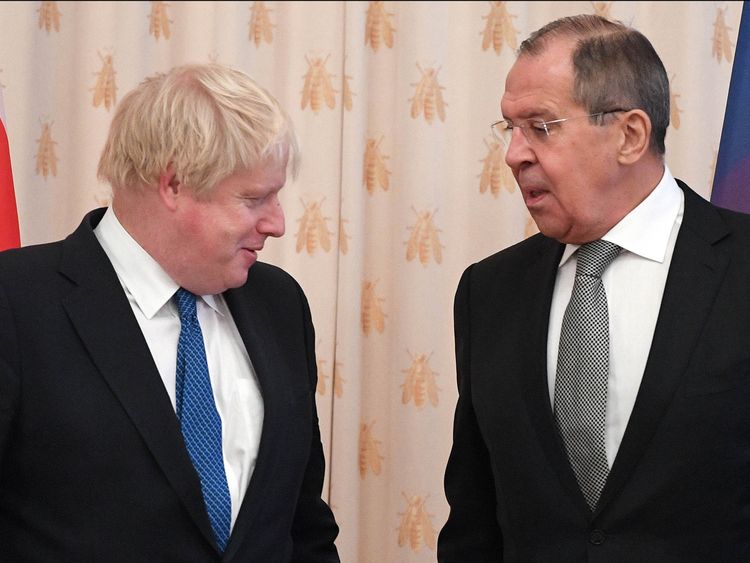By Tom Cheshire
 The UK's cyber arsenal should at least match the capabilities of anyone else, given GCHQ's expertise, says Sky's Tom Cheshire. In Dr Strangelove, deterrence is defined as "the art of producing in the mind of the enemy… the fear to attack". Deterrence only works if the enemy knows about the deterrent.
The UK's cyber arsenal should at least match the capabilities of anyone else, given GCHQ's expertise, says Sky's Tom Cheshire. In Dr Strangelove, deterrence is defined as "the art of producing in the mind of the enemy… the fear to attack". Deterrence only works if the enemy knows about the deterrent.
Things go south in that film because the USSR develops a superweapon, the Doomsday machine, in complete secrecy.
As Dr Strangelove himself puts it: "Of course, the whole point of the Doomsday Machine is lost if you keep it a secret! Why didn't you tell the world, eh?"
The UK has been telling the world about its deterrent cyberweapon program since at least 2011, when it first acknowledged the program.
Since then, we've seen numerous and devastating hacks from nation states including Russia, Iran and North Korea. One wonders how effective that UK deterrent has been.
 So the UK has decided to tell the world about its cyberweapons again. Boris Johnson has told the Russians that we will retaliate against cyberattacks.
So the UK has decided to tell the world about its cyberweapons again. Boris Johnson has told the Russians that we will retaliate against cyberattacks.
Image:Boris Johnson has met with his Russian counterpart Sergei Lavrov
And in the Intelligence and Security Committee's annual review of the intelligence agencies, published this week, GCHQ said it was developing a "full spectrum" of offensive capabilities.
GCHQ said that ranged from "technical stuff... right through to what we would say is the high end of counter-state offensive cybercapabilities which might never be used, and everything in between."
What might those weapons look like in real life? The Times reports techniques including "the ability to make another country's warplanes, ships and missiles malfunction and to infect a mobile phone to suck up information or wipe the memory".
 In fact, we've seen examples of exactly that - from the Russians. Hacking into phones is on the low end of what nation-states are capable of. But in June, ships in the Black Sea were sent off course because their GPS signals were spoofed.
In fact, we've seen examples of exactly that - from the Russians. Hacking into phones is on the low end of what nation-states are capable of. But in June, ships in the Black Sea were sent off course because their GPS signals were spoofed.
Many systems - including missiles and drones - rely on GPS (although not entirely).
Video:How Putin's Russia interferes in the West
Or take power stations. Ukraine's power grid has been shut down by cyberattacks twice in the last two years. Officials there have blamed Russia for the sabotage.
For an example of what a Western cyberweapon might be capable of, you need to look, counter-intuitively, at North Korea.
This week, the UK and USA officially blamed it for the Wannacry ransomware attack which spread rapidly around the world earlier this year. But its fearsome success was partly because it used tools developed by the US National Security Agency.
No comments:
Post a Comment